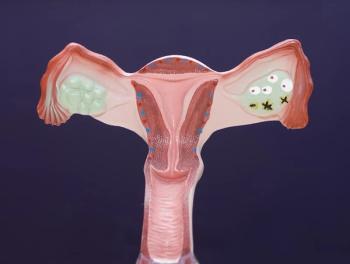
Miami Breast Cancer Conference® Abstracts Supplement
- 40th Annual Miami Breast Cancer Conference® - Abstracts
- Volume 37
- Issue suppl 4
- Pages: 27-28
31 TIP TROPION-Breast03: Datopotamab Deruxtecan (Dato-DXd) ± Durvalumab vs Investigator’s Choice of Therapy (ICT) for Triple-Negative Breast Cancer (TNBC) with Residual Disease Following Neoadjuvant Therapy
Background
Patients (pts) with residual invasive disease after neoadjuvant therapy for TNBC have a high risk of recurrence. Dato-DXd is a novel humanized anti–trophoblast cell surface protein 2 (TROP2) IgG1 mAb attached via a stable, cleavable linker to a topoisomerase I inhibitor (deruxtecan). In early phase studies, Dato-DXd alone or combined with anti–PD-L1 mAb durvalumab, demonstrated encouraging antitumor activity in pts with advanced/metastatic TNBC. TROPION-Breast03 will investigate the efficacy and safety of a new ADC/ immunotherapy combination, Dato-DXd ± durvalumab, vs ICT in pts with TNBC and residual invasive disease after neoadjuvant therapy, to potentially improve outcomes in this high-risk population.
Materials and Methods
This phase 3, randomized, open-label, 3-arm, multicenter, international study (NCT05629585) will recruit ~1075 pts across ~300 sites. Eligible pts ≥18 yrs have histologically-confirmed stage I–III TNBC and residual invasive disease (no locoregional/distant relapse) after ≥6 cycles of neoadjuvant therapy (including an anthracycline and/or a taxane ± carboplatin ± pembrolizumab [pembro]). Other key inclusion criteria: ECOG PS 0/1, no adjuvant systemic therapy, radiotherapy completion prior to study intervention, no known germline BRCA1/BRCA2 mutations, and an available FFPE tumor sample from the residual invasive disease at surgery. Pts who have received neoadjuvant PD-(L)1 inhibitors other than pembro will be excluded. At randomization, pts will be stratified by the extent of residual disease (<1 or ≥1 cm) and prior neoadjuvant therapy (pembro [yes/no] or platinum chemotherapy [yes/no]) and be allocated (2:1:2) to receive Dato-DXd (6 mg/kg IV Q3W × 8 cycles) + durvalumab (1120 mg IV Q3W × 9 cycles), Dato-DXd alone, or ICT (capecitabine and/ or pembro). Only pts who have received neoadjuvant pembro can receive pembro-based ICT. Pts will continue treatment until study completion, disease recurrence, or unacceptable toxicity. Primary end point: invasive disease-free survival (iDFS) per investigator assessment (Dato-DXd + durvalumab vs ICT). Secondary end points: distant DFS (key), iDFS (Dato-DXd vs ICT; key), overall survival (key), pharmacokinetics, immunogenicity, safety, and patient-reported outcomes. Exploratory end points include assessment of biomarkers (TROP2, PD-L1, ctDNA).
Status
Enrolment across all arms commenced in November 2022.
AFFILIATIONS:
Aditya Bardia,1 Lajos Pusztai,2 Kathy Albain,3 Kevin Kalinsky,4 Dawn Herman,5 William Barlow,6 Claudine Isaacs,7 Micah Maxwell,8 Nadia Harbeck,9 Priyanka Sharma10
1Massachusetts General Hospital Cancer Center, Harvard Medical School, Boston, MA.
2Yale University, New Haven, CT.
3Loyola University Chicago Stritch School of Medicine, Cardinal Bernradin Cancer Center, Loyola University Medical Center, Maywood, IL.
4Winship Cancer Institute at Emory University, Atlanta, GA.
5Herbert Irving Comprehensive Cancer Center at Columbia University, New York, NY.
6University of Washington, Seattle, WA.
7Georgetown University, Washington, DC.
8AstraZeneca, Gaithersburg, MD.
9Breast Center, LMU University Hospital, Munich, Germany.
10The University of Kansas Medical Center, Kansas City, MO.
Articles in this issue
Newsletter
Stay up to date on recent advances in the multidisciplinary approach to cancer.




































